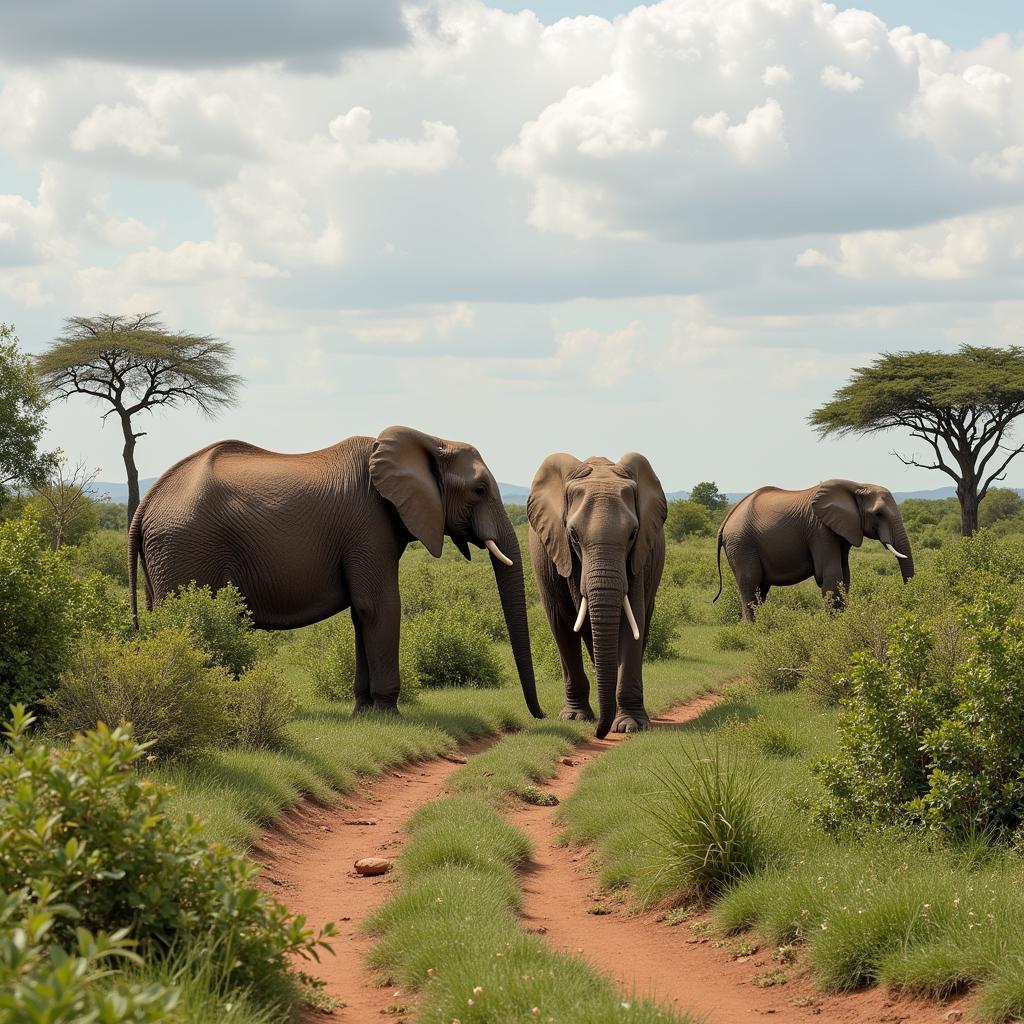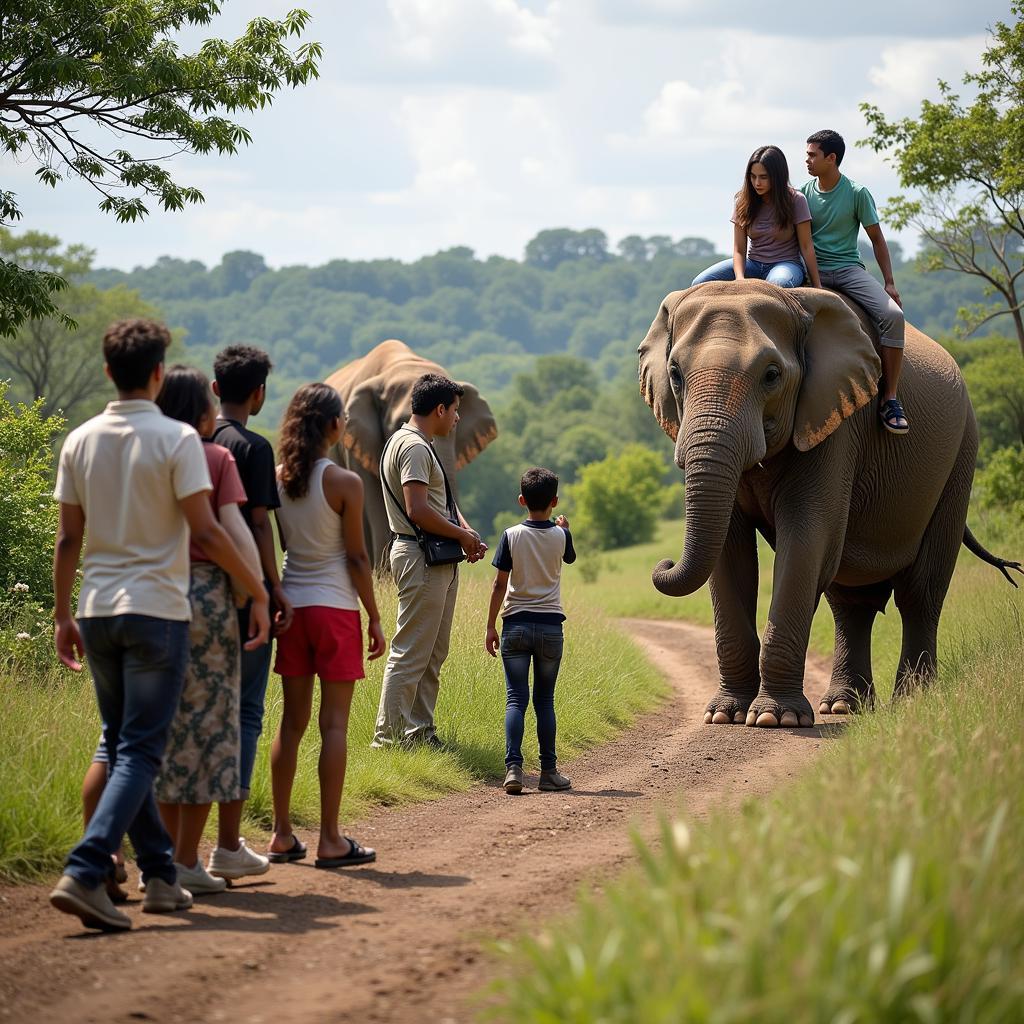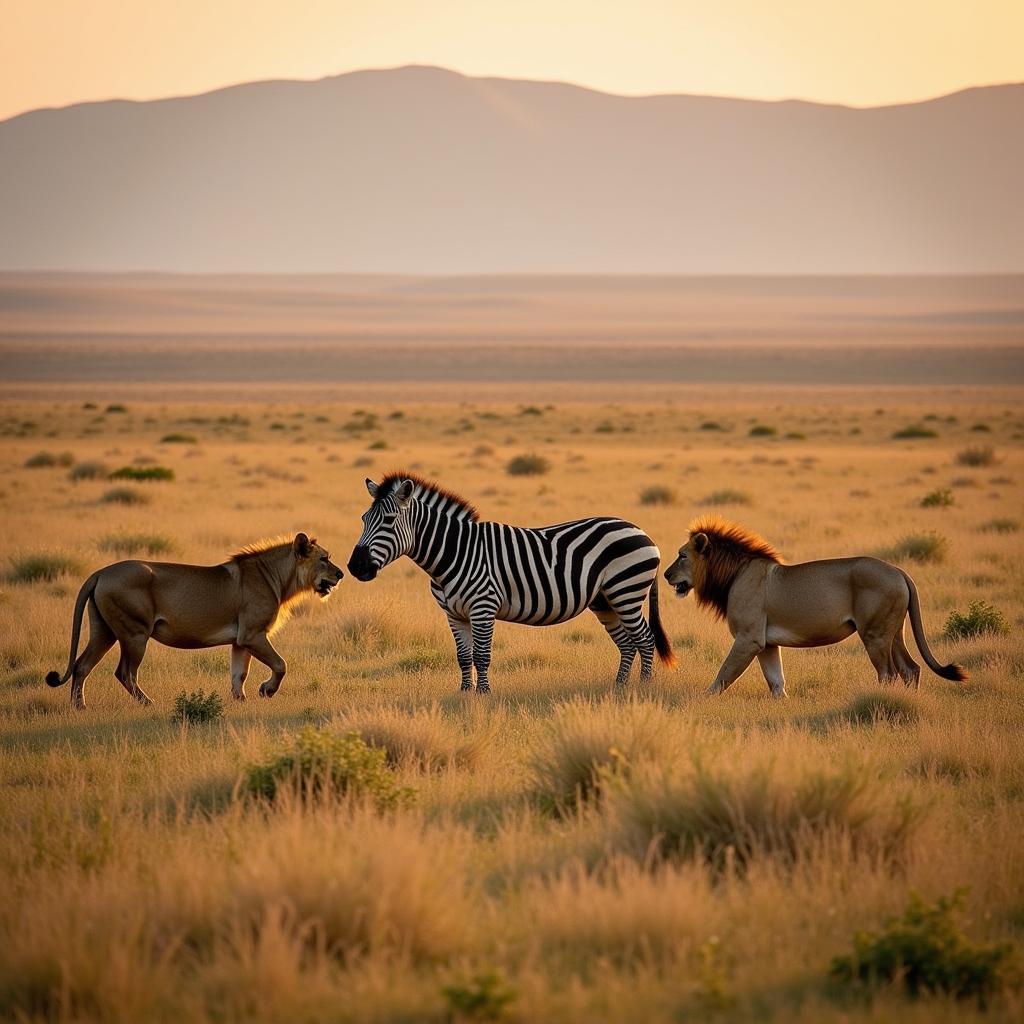Understanding African ENF: Challenges and Opportunities
African Enf (Elephant, Nature, Future) represents the complex interplay between these three crucial elements. The future of Africa’s elephants is inextricably linked to the preservation of its natural environment and the sustainable development of its people. This connection underscores the importance of understanding the multifaceted challenges and opportunities surrounding African ENF. The delicate balance between wildlife conservation, human needs, and economic development requires a comprehensive approach.
Protecting elephants is not just about saving a single species; it’s about preserving biodiversity and maintaining the ecological integrity of entire ecosystems. Elephants play a vital role in shaping their environment, from seed dispersal to creating waterholes. Their presence contributes to the health of forests and savannas, benefiting countless other species. This delicate ecosystem is threatened by habitat loss, human-wildlife conflict, and the illegal ivory trade.
The demand for ivory fuels poaching, decimating elephant populations and undermining conservation efforts. Tackling this issue requires international cooperation, strengthened law enforcement, and community engagement. Empowering local communities to become stewards of their natural resources is crucial for long-term conservation success. For example, programs that promote sustainable tourism and provide alternative livelihoods can reduce the economic incentives for poaching. The economic benefits generated by elephant conservation can then be reinvested in community development projects, creating a positive feedback loop.
The Importance of Elephant Conservation in Africa
African elephants are keystone species, meaning their presence is vital for the health of the ecosystem. They shape the landscape, create habitats for other animals, and disperse seeds. Loss of elephants has a cascading effect, impacting biodiversity and ecosystem services. Protecting these gentle giants is essential for maintaining the ecological balance of Africa’s unique landscapes. Effective conservation strategies must address both the immediate threats to elephants and the underlying socio-economic drivers of poaching and habitat destruction. For more context on the impact of human activity on African animals, see the story about African donkeys China.
 African Elephant Ecosystem Impact
African Elephant Ecosystem Impact
Balancing Conservation with Human Needs
Human-wildlife conflict is a significant challenge in areas where elephants and humans coexist. Crop raiding and other forms of damage caused by elephants can lead to negative perceptions and retaliatory killings. Finding solutions that benefit both elephants and local communities is crucial for sustainable coexistence. These solutions might include establishing buffer zones, developing early warning systems, and providing compensation for crop damage.
Addressing the root causes of human-wildlife conflict often requires tackling poverty and improving access to resources and education. Initiatives that empower local communities to benefit from conservation can foster a sense of ownership and encourage active participation in protecting wildlife. Furthermore, educating communities about the ecological importance of elephants and promoting human-wildlife coexistence can lead to positive changes in attitudes and behaviors.
The Future of African ENF: Sustainable Development and Eco-Tourism
Eco-tourism offers a promising avenue for sustainable development and elephant conservation. By generating revenue from wildlife viewing and other nature-based activities, eco-tourism can provide economic incentives for protecting elephants and their habitats. However, it is essential to ensure that eco-tourism is managed responsibly and that the benefits are shared equitably with local communities. Unregulated tourism can have negative impacts on the environment and local cultures. The exploitation of vulnerable populations, like the one described in African call girl Gurgaon, highlights the need for careful consideration of social impacts in development projects.
Developing sustainable livelihoods that are compatible with elephant conservation is essential for ensuring the long-term survival of these magnificent animals. This could involve promoting sustainable agriculture, developing community-based tourism initiatives, and supporting local businesses that are committed to environmental sustainability. It’s crucial to address the complex issue of the ivory trade and its impact as discussed in African hunting trophies for sale. The history of exploitation also plays a significant role as seen in the historical context of the African American poll tax. Stories like the African girl raped in Chelekere India further emphasize the importance of protecting vulnerable communities.
 African ENF Sustainable Tourism
African ENF Sustainable Tourism
Conclusion
The future of African ENF rests on our collective commitment to conservation and sustainable development. By working together, we can protect elephants, preserve Africa’s natural heritage, and create a brighter future for the people who share this magnificent continent. Supporting responsible tourism, combating illegal wildlife trade, and empowering local communities are key steps in ensuring a harmonious relationship between elephants, nature, and future generations.
FAQ
- Why are elephants important for the African ecosystem?
- What are the main threats to African elephants?
- How can eco-tourism contribute to elephant conservation?
- What are some solutions to human-wildlife conflict?
- How can we support sustainable development in elephant range states?
- What is the role of local communities in elephant conservation?
- How can we combat the illegal ivory trade?
Common Scenarios:
- Scenario: Elephants raiding crops.
- Solution: Implement early warning systems and community-based mitigation strategies.
- Scenario: Habitat loss due to deforestation.
- Solution: Promote sustainable land management practices and reforestation efforts.
- Scenario: Poaching for ivory.
- Solution: Strengthen law enforcement and increase penalties for wildlife crimes.
Related Articles:
- The Impact of Climate Change on African Elephants
- Community-Based Conservation in Africa
- The Role of Technology in Wildlife Conservation
For further assistance, please contact us at: Phone: +255768904061, Email: [email protected] or visit our office at: Mbarali DC Mawindi, Kangaga, Tanzania. Our customer service team is available 24/7.


